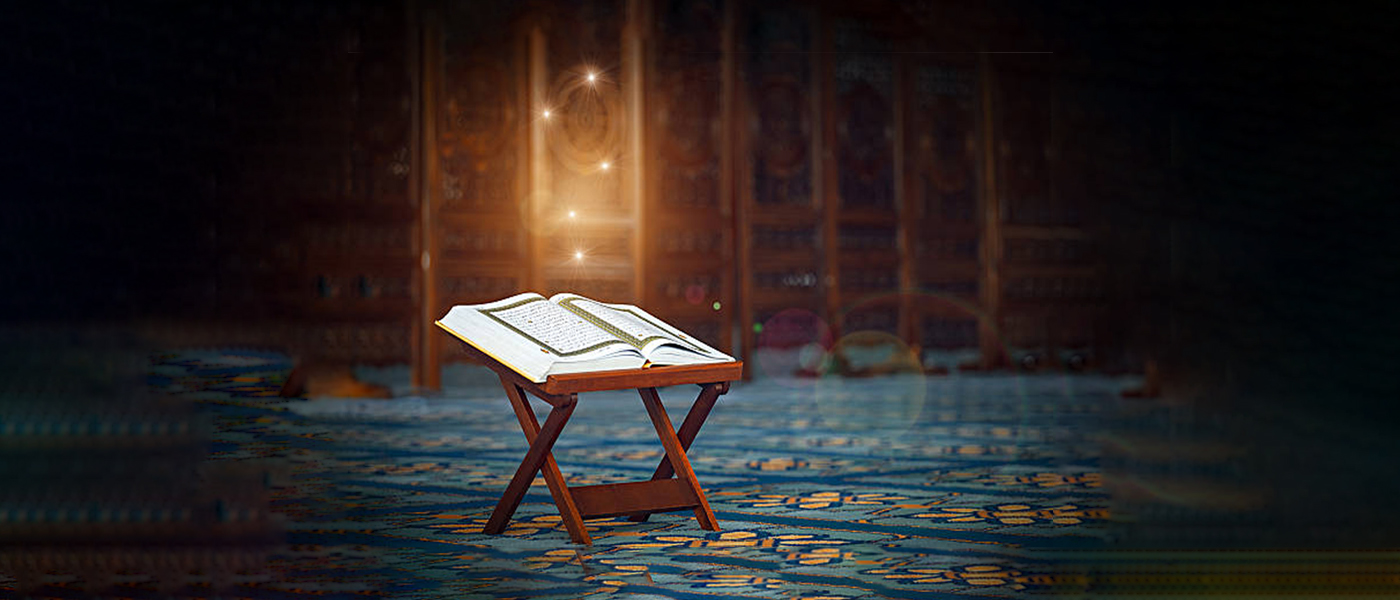

The true place of intellection in our lives
Have you ever thought about which among the thousands of blessings Allah granted us is the most significant? It is not an easy task, but if you carefully think about it, you may guess the answer.
As our dear Prophet (PBUH&HP) said (1), the greatest blessing is intellect. Through this remarkable gift, humans have been recognized as the pinnacle of all creations, even angels bow ed down to him expect for Satan. Let us even think about this matter rationally, setting aside religious teachings . Throughout history, the inherent power of humans against wild animals has not primarily been their physical strength or survival capabilities in harsh natural conditions.
Instead, it's their intellect that empowers them to create weapons and shelter, making them the most resilient species on Earth.
Our great Prophet and dear Imams (PBU Them) have consistently mentioned that intellect is one of humanity’s paramount gifts that must be integrated into our lives. Even the Holy Quran has numerous verses about intellect and wisdom, beautifully highlighting their profound importance. If you read the Holy Quran frequently, you have likely seen the words like “They are reasoned” or “They are contemplating” in many verses. These instances underscore how dearly Islam values intellect and stresses its role in our lives. Let’s now explore some verses here that show us the significance of intellect:
[This is] a blessed Book that We have sent down to you, so that they may contemplate its signs, and that those who possess intellect may take admonition.
(The Holy Quran 38:29)
They ask you concerning wine and gambling. Say, ‘There is a great sin in both of them, and some profits for the people, but their sinfulness outweighs their profit.’ And they ask you as to what they should spend. Say, ‘All that is surplus.’ Thus does Allah clarify His signs for you so that you may reflect
(The Holy Quran 2:219)
Indeed, We have sent it down as an Arabic Quran so that you might understand . (The Holy Quran 12:2)
Is he who supplicates in the watches of the night, prostrating and standing, apprehensive of the Hereafter and expecting the mercy of his Lord...? Say, ‘Are those who know equal to those who do not know?’ Only those who possess intellect take admonition.
(The Holy Quran 39:9)
The Prophet (PBUH&HP) stated “The good of this world and the hereafter lies in knowledge, and the evil of this world and the hereafter lies in ignorance.” (2)
Imam Sadigh (AS) said “I wish to see none of you [Shias] but in two categories: a scholar or a student.” (3)
Imam Ali (AS)proclaimed “Indeed, knowledge is the lifeblood of hearts, enlightening blinded eyes and empowering incapacitated bodies.” (4)
References:
- Allah (SW) has not created anything better for man than reason .
- Bihar al-Anwar (79th Volume – page 170)
- Al-Amali Tousi (Page 303)
- Tuhaf al-Uqul (page 28)
Share This Article

The Nature of Afterlife
Death and the nature of afterlife, have always been mysterious to human beings. Everybody is willing to either find it out himself or to have faith in what has been said and discovered about it. Muslims seek the answer in the Quran, the holy book they believe in. In Quranic thoughts, death is nothing but the transfer of the human soul from the natural universe to the spiritual world, going back to the one who created it all, i.e., God; “Indeed we belong to Allah, and to Him do we indeed return” (2:156).
According to the Holy Quran, death is no inexistence or destruction, But a threshold to the next stage of life and existence. However, it is noteworthy that what forms the exact nature of humankind is not the physical and material composition that disintegrates and gets destroyed after death; in fact, our real self is made up of our soul that is seized and released from the captivity of the body and then returns to its origin, the Divine presence, God.
Therefore death in the Islamic viewpoint happens when the immortal soul or self of a human cuts its attachment and relationship from the body and consequently, the body perishes while the soul continues its life without it.
“Say: You will be taken away by the angel of death, who has been charged with you. Then you will be brought back to your Lord” (32:11).
Life after Death
Now one might wonder what happens to us after death; are we going to begin our lives in the hereafter right away, or we will experience a different temporary stage of life that lasts up until the Day of Judgment?
Muslims get the information about this issue, through revelations received by the last Prophet, Muhammad (PBUH), in verses of the Quran. Based on what has been revealed to our prophet, the afterlife does not begin right after we die. Human beings will enter an intermediate world called “Barzakh” in which they would feel, see and hear everything differently; there would be things they enjoy and ones they suffer from, based on their deeds in this earthly life. In short, man will go through two different stages of life after death; one temporary that is to come right after death, and one that lasts forever and will never end.
The Intermediate World (Barzakh)
“…And ahead of them is a barrier until the day they will be resurrected” (23:100).
Literally speaking, “Barzakh” is a barrier that stands between two things; Quran, however, introduces it as an interval between the death of a man and the forthcoming hereafter (Ma’ad); a stage at which human leads either a blissful or miserable life, based on his deeds on earth.
The Day of Judgment
The second stage of eternal life starts on the Day of Judgment (Yawm Al-Hisab). Unlike “Barzakh”, at which humans enter individually after death, this occurs to all the beings and the whole universe at the same time; every being starts a new permanent stage of life.
“And you will see the angels surrounding the Throne, celebrating the praise of their Lord, and judgment will be made between them with justice, and it will be said," All praise belongs to Allah, the Lord of all the worlds” (39:68).
Near the time of resurrection, all beings will cease to exist after hearing the first blow of the Horn (Israfil’s Horn). Then there will be a second blowing, and all Creation from the beginning till the end of time will be resurrected. People will be coming out of their graves in their physical bodies, standing and waiting, severely worried, under the sun to be judged by their Lord and to see rewards and retributions for their benevolent and malevolent actions in the earthly life.
“And when the Trumpet is blown, behold, there they will be, scrambling from their graves towards their Lord” (36:51).
Paradise and Hell
That day humans will be either granted admission to enter Paradise, where they will enjoy spiritual and physical pleasure, or sentenced to suffer spiritual and physical torment in Hell forever.
“[To the righteous it will be said], O soul at peace! Return to your Lord, pleased, pleasing! Then enter among My servants! And enter My paradise” (89:27-30).
“... and whoever disobeys Allah and His apostle, indeed there will be for him the fire of hell, to remain in it forever” (72:23).
The nature of Heaven and Hell has been analogously described in the Quran many times. However, there are verses that say:
“No one knows what has been kept hidden for them of comfort as a reward for what they used to do” (32:17).
Accordingly, What Heaven and Hell are really like is far beyond our comprehension and so cannot be explained to us unless they are allegorical.
The Relation between Earthly Life and Afterlife
In fact, the earthly affairs of mankind here are not separable from those of hereafter; that is the otherworldly destiny of a man is determined by himself in this world. Many verses of the Quran indicate that the same good or bad deeds man commits in this life, will return to him, as their own reward or punishment, on the day of requital. People will live with the embodiment of their good or evil deeds, which are going to be their eternal companions.
The Similarities and Differences of Earthly Life and Afterlife
One of the common features of this earthly life and the hereafter is that they are both real and actual; in other words, human beings are aware of themselves and what belongs to them in both worlds. There are joy and pleasure, suffering and pain, or happiness and misery in both lives. In both worlds, human possesses a physical body and particular instincts. Nevertheless, there are basic differences too.
The reproduction, childhood, youth, senescence, and death we experience here will not exist in the hereafter. Here is the place of action while the hereafter is where we should pay for what we have done and compensate for our deeds. Life in this world is followed by death whereas we will lead an eternal life in the other world. Quran says:
“The life of this world is nothing but a diversion and play, but the abode of the Hereafter is indeed Life, had they known” (29:64).
Man’s perception will be heightened in the afterlife, and he will realize the truth of everything -every action or every being- more vividly. “[It will be said], You were certainly oblivious of this. We have removed your veil from you, and so your sight is acute today” (50:22).
In this earthly life, the man easily gets bored and tired of everything; he is always seeking what he does not have, and once he finds it he soon feels jaded and starts looking for something else. It seems as though he has lost something he can hardly find. In the hereafter, however, he will find what he has always longed for and what he has been attached to deep in his nature; that is Allah, the Lord of the universe.
Read More

12 Scientific Facts in The Quran Discovered Centuries Later: Part 2
In the first part of this article on the scientific facts in the Quran, some astronomical facts mentioned were discussed. Here, we review some interesting facts about nature, including some points about mountains, the origin of life, the position of the sky and the seas merging together.
5. Mountains with Deep Roots under the Ground
The Quran has used the word stakes to describe mountains: “It is He who has spread out the earth and set in it firm mountains” (13:3), “Did We not make the earth a resting place? and the mountains stakes?” (78:6-7). It means that mountains have deep roots under the ground surface. Mountains do have deep roots, and the word stakes is an accurate description for them. This fact was discovered only in the latter half of the 19th century. The presence of the mountains on the ground also helps to stabilize the crust of the earth [4]. They also hinder the earth-shaking. “He cast in the earth firm mountains lest it should shake with you” (16:15). This is known today under the theory of plate tectonics since the late 1960s [1].
6. The Origin of Life according to the Quran
Life of a human being starts in water. From conception to birth, a fetus is protected and cushioned in a sack of water. A human body needs water in all its cells, organs, and tissues to help regulate its temperature and maintain other bodily functions. Plants also need enough hydration to perform photosynthesis, while animals consume water to carry out cell activity. Overall, water is an essential element for all living beings on earth. This fact was discovered only after the invention of the microscope. Now we know that all living things are made up of cells which are mostly made up of water. This fact has already been stated in the Quran: “We made every living thing out of water? Will they not then have faith?” (21:30).
7. The Sky as the Protector of the Earth
The sky plays several essential roles as the protector of the earth, such as filtering out the lethal rays of the sun. If there were no sky, the sun’s radiations would have killed off all life on earth. The sky also acts as a blanket around the earth, which protects the living things from freezing out by the cold just above the sky that is approximately -270°C. The greenhouse effect is another role that the sky plays. By warming the surface of the earth by means of heat retention, the sky reduces temperature extremes between day and night [2]. These protective roles of the sky were discovered by scientists in the 20th century. The Quran has mentioned this role of the sky as: “We made the sky a preserved roof and yet they are disregardful of its signs.” (21:32).
8. Where the Seas Meet
It has been discovered by the scientists that there is a barrier between the two different seas that meet. Hence, each of the seas has its own temperature, salinity, and density, like the Mediterranean Sea and Atlantic Ocean water. Despite large waves, strong currents, and tides in these seas, they neither mix nor do they transgress this barrier [3]. This phenomenon has been mentioned in the Quran as: “He merged the two seas, meeting each other. There is a barrier between them which they do not overstep.” (55:19-20). There is also a case where fresh (sweet) and saltwater meet. Here, the Quran talks about the existence of a forbidding partition along with the barrier: “It is He who merged the two seas: this one sweet and agreeable, and that one briny and bitter, and between the two He set a barrier and a forbidding hindrance.” (25:53). Modern science has discovered that in estuaries, where fresh and saltwater meet, there is a marked density discontinuity that separates the two layers. The salinity of this zone of separation (partition) is different from that of freshwater and that of saltwater. There is, therefore, the division of water in estuaries into three parts: freshwater, saltwater, and the partition [3].
Follow us on the last part of this topic to find out what the Quran has revealed about human embryonic development, clouds, and deep seas, and the creation of everything in pairs.
References:
Read More

